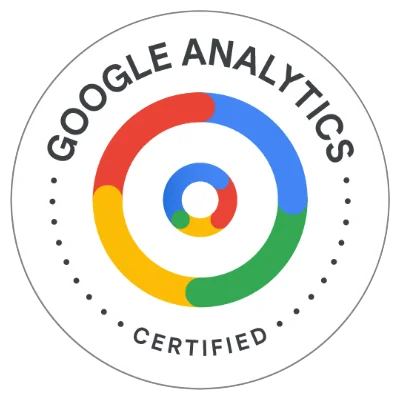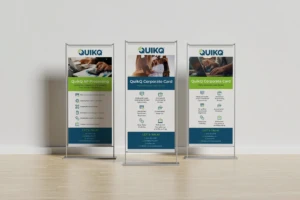In a previous article, we told you that your website is a living, breathing thing that needs regular maintenance. Otherwise, your top brand-storytelling tool will lose its effectiveness and potency.
While the need to perform regular backups, update your content frequently and conduct security and patch updates cannot be overstated, it’s also the bare minimum you should be doing for your website.
In order to ensure your website reaches the biggest audience possible, you need to prioritize search engine optimization (SEO). Simply put, SEO controls how visible your website is to search engines like Google, Bing and other sources of organic traffic. Stronger SEO means more web traffic, higher visibility and increased focus from potential customers. After all, 68% of online experiences begin with a search engine.
But improving SEO is anything but simple, and many believe mastering SEO is a daunting task that requires significant time and money. Fortunately, there are some quick, affordable SEO tactics you can complete right now that will pay immediate dividends.
In this beginner’s guide to SEO, we will demystify the world of search engine optimization and provide you with actionable tips to improve your SEO that don’t require major expertise … or a major budget.
SEO: Then and Now
SEO has come a long way since its inception. In the early days, maximizing SEO was all about keyword stuffing and manipulating search engine algorithms. However, search engines have become smarter and more sophisticated, and the old tricks don’t deliver the same results they once did.
Today, SEO is a multifaceted approach that focuses on providing valuable, relevant content to users while adhering to search engine guidelines.
Quality Content Is Important
Effective SEO begins and ends with high-quality, relevant content. Search engines prioritize content that answers users’ questions, provides valuable information and offers unique insights.
Focus on creating compelling, informative content that resonates with your target audience. The more articles, whitepapers, videos, infographics, etc. you publish, the more you increase your website’s chances of ranking higher in search engine results.
And yes, keywords are still important. But don’t make keywords the primary goal of your content.
Keywords: Strategic Placement and Relevance Matter
Keywords remain a fundamental aspect of SEO. However, their usage has evolved.
Instead of stuffing keywords unnaturally throughout your content, focus on strategic placement and relevance. Identify keywords and phrases that are relevant to your business and target audience. The best places to incorporate keywords naturally, with minimal impact on your content, are in headings, subheadings and meta tags.
When you create content, try to think of the people who will be consuming it. If you believe your content doesn’t read naturally enough because there are too many keywords mucking up the flow, then your audience will probably feel that way, too.
Focus on the User Experience
Search engines value user experience more than ever before. In particular, the mobile user experience is critical.
A significant portion of online traffic comes from mobile devices. According to one source, 55% of website traffic comes from mobile devices, and 92.3% of internet users access the internet using a mobile phone.
This is why your website has to be mobile-friendly and responsive. Additionally, you should optimize your website’s loading speed to provide a seamless experience for users. Slow-loading websites can result in higher bounce rates and lower search engine rankings.
Think (and Target) Locally
If your business serves a local market, optimizing for local SEO is crucial. Nearly half (46%) of all searches on Google are for a local business or local service.
Make sure your website includes location-specific keywords, such as city or neighborhood names, and utilize platforms like Google My Business to enhance your local visibility. You also want to encourage customer reviews because they play a vital role in local search rankings.
How Many Backlinks Are Too Many?
Backlinks, or links from other reputable websites to yours, remain an important ranking factor. The first ranking page on Google has an average of nearly four times more backlinks than positions 2 to 10.
But similarly to keywords, the focus on backlinks has shifted from quantity to quality.
Try to use backlinks from authoritative websites in your industry. This may not be an overnight process. However, building relationships and networking within your industry can help you establish valuable backlinks naturally over time.
SEO Never. Ever. Stops. Evolving.
Many experts estimate that Google changes its search algorithm around 500 to 600 times each year. Most people may not notice a search algorithm changing twice a day, but some of these updates can seriously throw a stick in the spokes of your SEO efforts.
For example, Google recently tweaked its search algorithm to reward a higher rank to quality content that comes from trusted sources with firsthand experience. In other words, if you write a review of all the honky tonks in Nashville, your article will rank higher if you actually visited each bar that you wrote about.
With these types of algorithm changes happening daily, you need to implement website analytics tools, such as Google Analytics, to monitor your website’s performance. Pay attention to data like traffic sources, user behavior and conversion rates to gain insights into what’s working and what needs improvement. It’s also a good idea to use a tool like SEMrush, Moz or Ahrefs to help regularly review and refine your SEO strategy based on specific insights.
Improving your SEO doesn’t have to be overwhelming. By creating valuable content, optimizing for relevant keywords, providing an excellent user experience, and everything else mentioned in this guide, you can make significant strides in improving your SEO without having to spend a significant amount of time and money.
And don’t hesitate to contact us if you want to have a conversation about improving your website’s SEO.
At Brand825, we believe every company deserves access to good marketing. Give us a shout if you want to discuss marketing strategies that will work well for your business … and your budget.
From blog posts to detailed marketing campaigns, Andy Goldstein obsesses over words. As Brand825’s Content Strategist, he enjoys writing under a deadline as much as he does formulating complete content strategies and recording streaming audio ads. Andy is an avid sports fan and enjoys getting outdoors with his two sons.











